
Lockdown has been tough for all, but more so for the hidden and forgotten communities around us. We wanted to create awareness about these communities who badly needed support – the people who have been constructing our apartments and houses, helping us with our domestic work and providing us with other essential services. Many of them have lost their jobs, some of them have not been paid salaries.
Our journey began with a small group of migrant families in HSR layout, ward 174. We began by lending a helping hand to the efforts of BBMP and the Labour Department in reaching out to this community near Gurumurthy Temple area.
Initially, we distributed cooked meals to over 100 people every evening. As days progressed, we started to connect more with the community, and they gradually started identifying the more vulnerable families amongst them. Each of the 30-plus days was a different experience for both of us. We thought of sharing a few of these.
Case #1: Three families with pregnant women needed something more than just the cooked meal we delivered. The pregnant women, who were in different trimesters, needed Iron, Folic acid and Vitamin tablets. They also needed financial assistance for their scans. Thanks to our friends pitching in, we supported them by procuring their medicines and providing financial assistance. Gradually a few more pregnant women from the neighbourhood came requesting support. None of them was refused help.
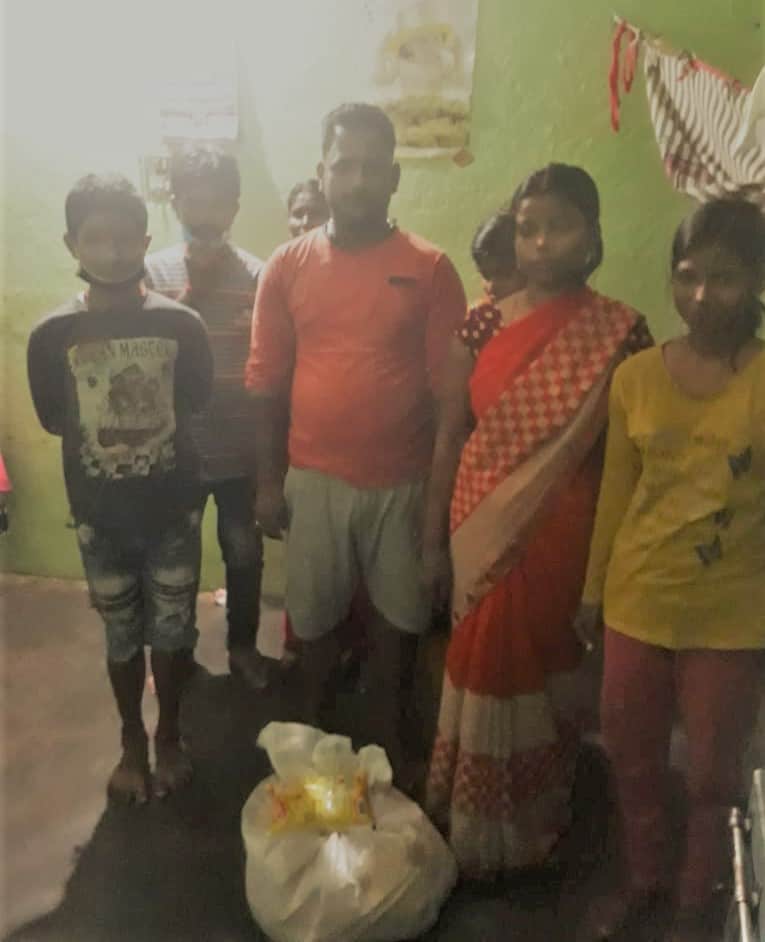
Case #2: As requests from members of the community to assist them with ration kits started building up, we reached out to a few NGOs. We were supported by the NGO Diya Ghar and the Covid-19 Relief team, and supplied rice, dal, oil and other essential items to the community.
Case #3: Some women employed as domestic workers in various apartments in the vicinity approached us saying their salaries were held up. We initiated talks with their employers either directly or indirectly through our friends, and requested the employers to pay the balance amount.
Case #4: One family said they did not have electricity for 1.5 months. We approached the owner of their house and realised they had other outstandings too. The owner waived the water bill, while we pitched in for the electricity bill and ensured the house was lit up again.
Case #5: A group of young men were asked to return to their hometown by their contractor. They had no ID cards from work, no appointment letters, and were distraught. We tried convincing them to stay back rather than return to their home state and explained to them the risks of travelling at this stage, the uncertainty of transport arrangements etc.
Later that night we got a call from Shyam, a member of the community, saying, “Sir, they are ashamed to speak up, they have a gas cylinder and few potatoes but no other items in their kitchen”. The next day, we ensured they had rations. But as they were adamant on going home, gradually, along with Shyam, we shifted our focus to helping them reach their hometowns in Bihar.
Again some of our friends pitched in and contributed for their train fares. It was so heartening to see their joy as they left for their hometowns. They, in turn, kept sharing pictures and videos of their bus journey from the police station in Bandepalya to the railway station, and finally the train journey back home.
The way forward
What started with us delivering their evening meals gradually progressed to adding rotis (thanks to Fresh Phulkas), and adding fruits, eggs and biscuits on select days.
We are now trying to understand the needs of this community better. Can we help address some of their necessities – starting with address proof and then perhaps availing ration card, a health card, labour card, opening a bank account, or help them start a regular savings programme to tide over future challenges?
This community has now become like a family to us. This couldn’t have happened without Shyam and Binod from the community who helped us understand their special needs. We want to do our bit to make them self-sustainable in any small way we can.
We extend an invitation to more of our friends to join us in this journey as the constraints of COVID lockdown eases. We believe each of you can help in your own unique way. Can we create a model to develop small community support groups across Bengaluru? Can each resident welfare association also extend support to these communities and make it part of their charter?
| An Appeal We have come across many households in and around Somasandrapalya (extension of HSR Layout) who haven’t got their wages from companies and houses, and are struggling. For the last 45 days, we have visited them every day and have seen their hardships. We were invited into many of their houses and noticed their bare kitchens. Thanks to a few supporters (NGOs and friends), we have contributed a bit to refill a few gas cylinders, pay for some electricity bills, medicines, ultrasound for pregnant women, tickets for their return journey, cooked meals every evening, and also a bit of ration. Our request Rs 10,400 worth of provisions will support 10 families for two weeks. You could support even one family at Rs 1040 for a ration kit, or support us by funding other items like refill of a gas cylinder, mobile recharge, medicines, etc. Would you like to help us support some of these families? You can transfer your contribution to Kaagaz Foundation (mention ‘for Somasandrapalya’) and let us know. Account holder’s name – Kaagaz Foundation Account number – 33099565916 IFSC code – SBIN0030495 Account type – Current Account Bank/Branch Name – State Bank of India, HSR layout 2 Sector Branch Thanks in advance for the support |
(All pictures taken by the authors)
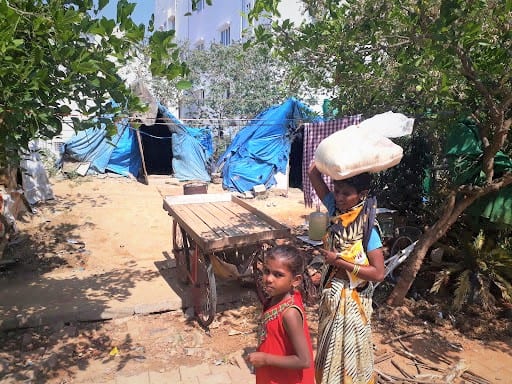
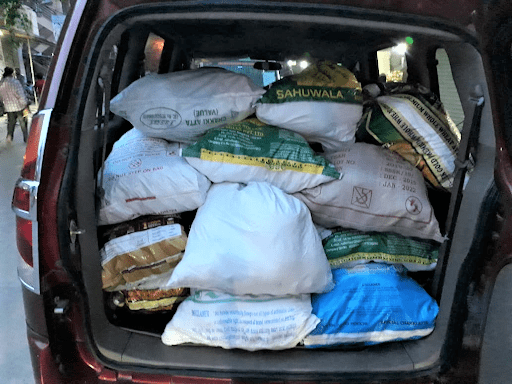
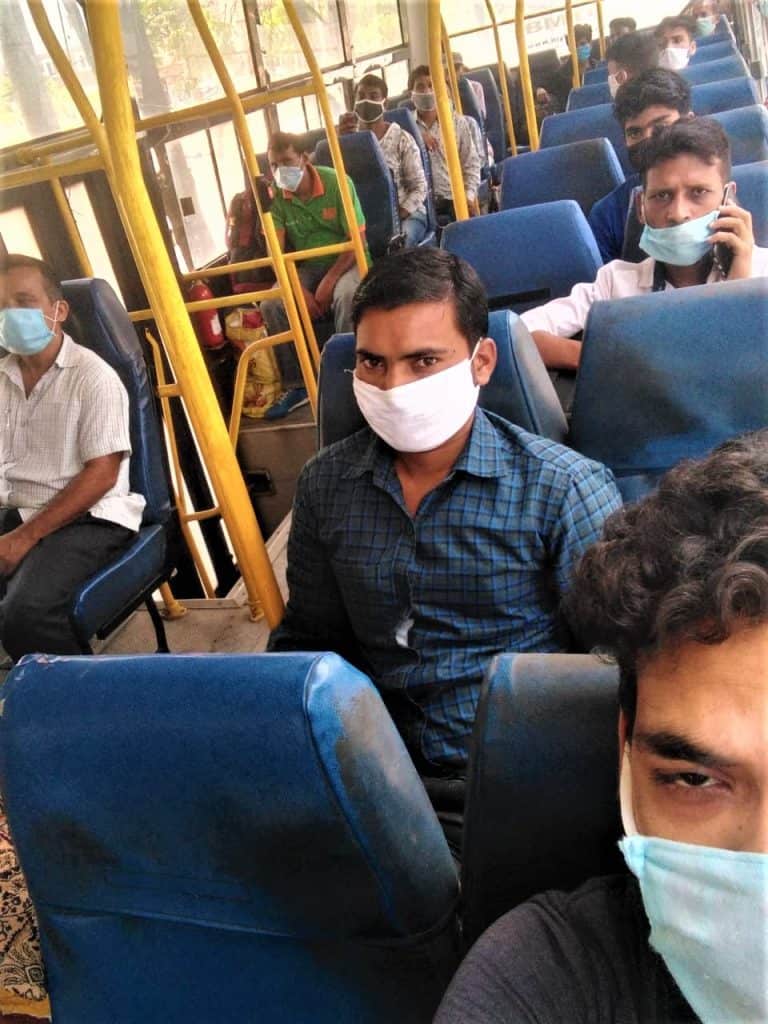
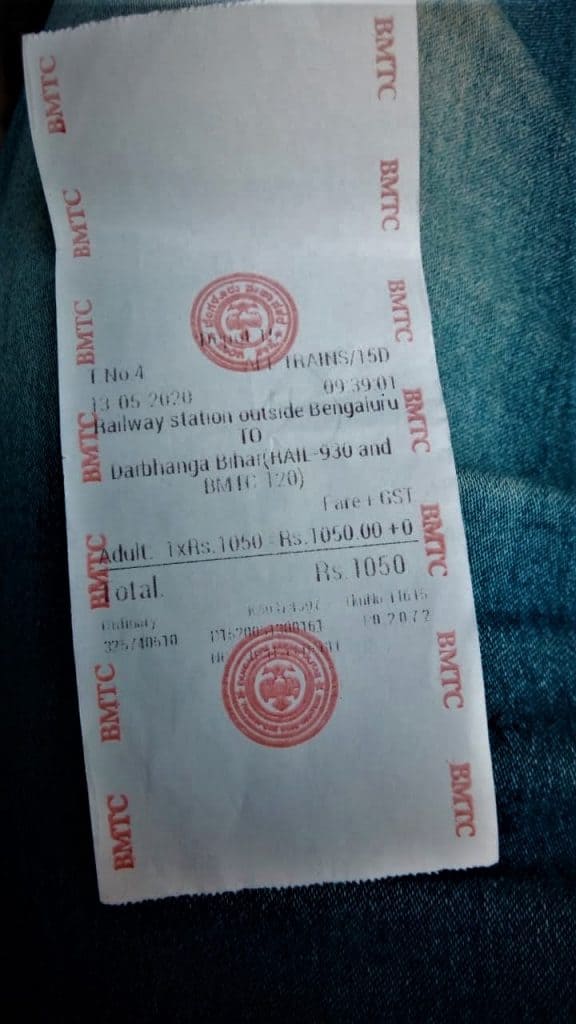
Dear Lalithamba and Anil,
I would like to be of assistance. Please can you mail me on manish.s@printo.in
Dear Manish,
Thank you for expressing interest. We will connect as suggested.
Warm regards,
– Lalitha & Anil